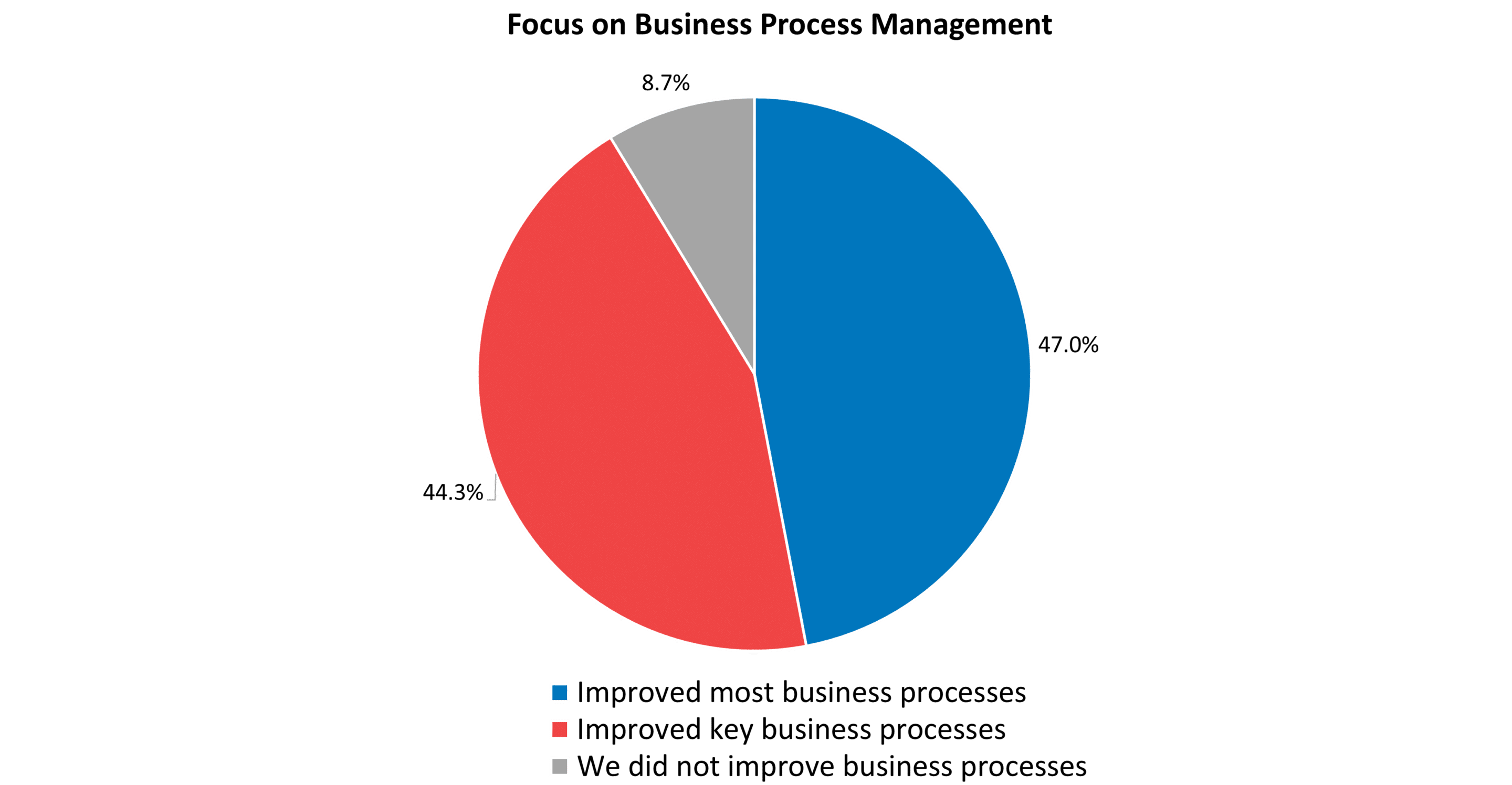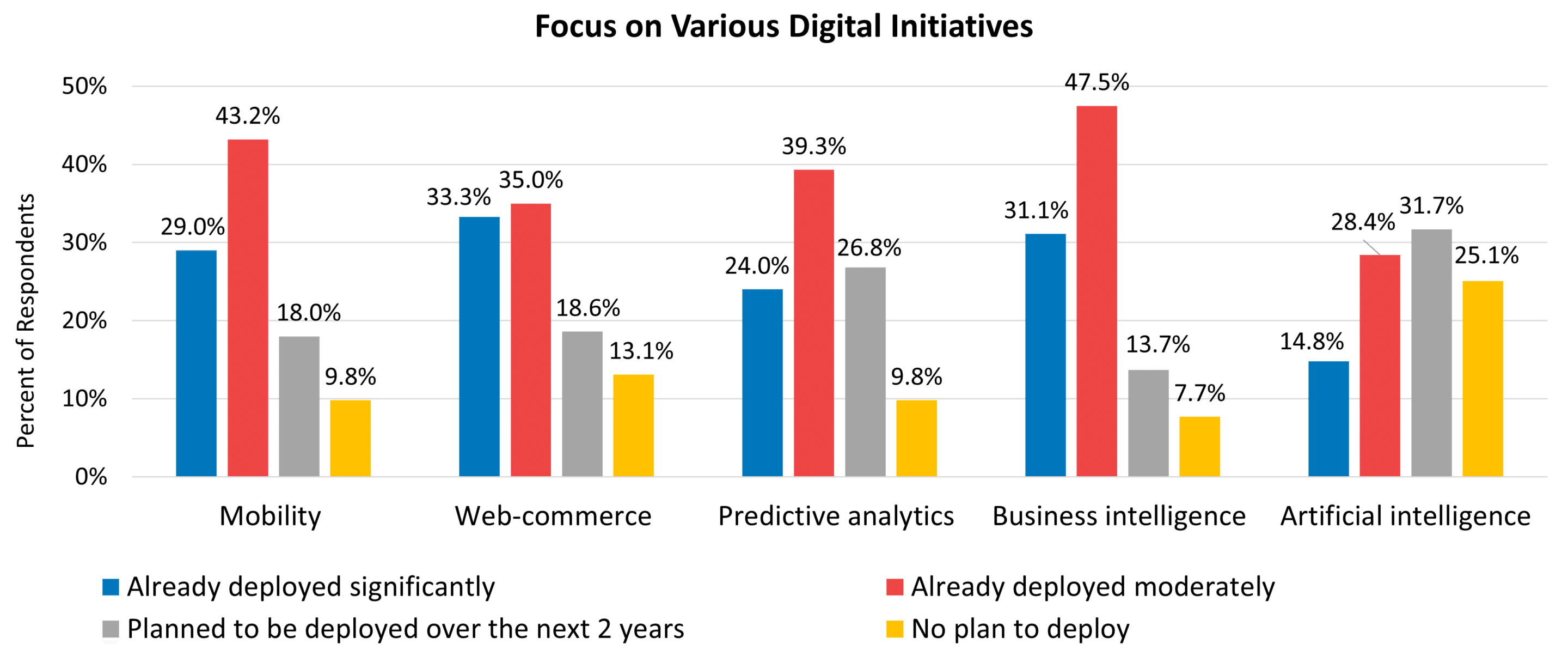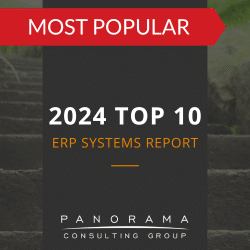In the face of global uncertainty, organizations are rethinking their current business technology and investing in modern digital solutions.
This is one of many findings from our 2023 ERP Report. The report is based on responses from organizations across industries, organization sizes, and geographic locations.
The 2024 ERP Report
88.5% of respondents said they deployed or plan to deploy AI at their organization. Learn about AI adoption and other ERP trends by downloading our latest report.
Based on our findings, it appears that the technology investments organizations are making are bringing measurable business benefits – 83% of organizations said their project met their return on investment (ROI) expectations.
The key reason? We believe it has a lot to do with the smart decisions organizations made:
- Most organizations sought implementation guidance.
- Most organizations ensured a moderate to intense focus on organizational change management.
- Most organizations improved at least some of their processes.
Achieving a high ROI can be difficult if you don’t use ERP consulting services and instead do an in-house implementation of ERP.
Continue reading for an overview of our report findings and a deep dive into data highlighting the dangers of in-house ERP projects.
A Brief History of ERP
Enterprise resource planning (ERP) didn’t come around until the 1990s, but its foundation came about in the 1960s. Back then, it was known as inventory management and control.
In the 1960s, a greater focus on factory output began. To help increase production, computing solutions were created. During this time, software developers focused on creating applications to handle inventory management.
By the 1990s, these solutions evolved to handle all aspects of business, including accounting, human resources, customer relationship management, and more.
We now find ourselves in 2023 – a time where ERP software is not simply a means to automate processes but to create digital business models. This is known as digital business transformation.
Regardless of the type of project you’re pursuing, it’s important to seek third-party guidance.
4 Reasons You Should Avoid an In-house Implementation of ERP
If any of these statements are true of your company, consider hiring outside experts to help you achieve your project goals:
1. Your Organization Lacks ERP Experience
Most organizations lack the expertise and experience to handle an ERP implementation. As a result, they face a huge learning curve.
In addition to struggling to differentiate between the hundreds of ERP systems on the market, organizations often struggle to understand the variety of business benefits that their chosen software could bring.
As a result, they don’t orient their project around critical goals, like gaining access to real-time data in their supply chain.
In fact, our report reveals that less than half of organizations defined goals related to real-time data access:
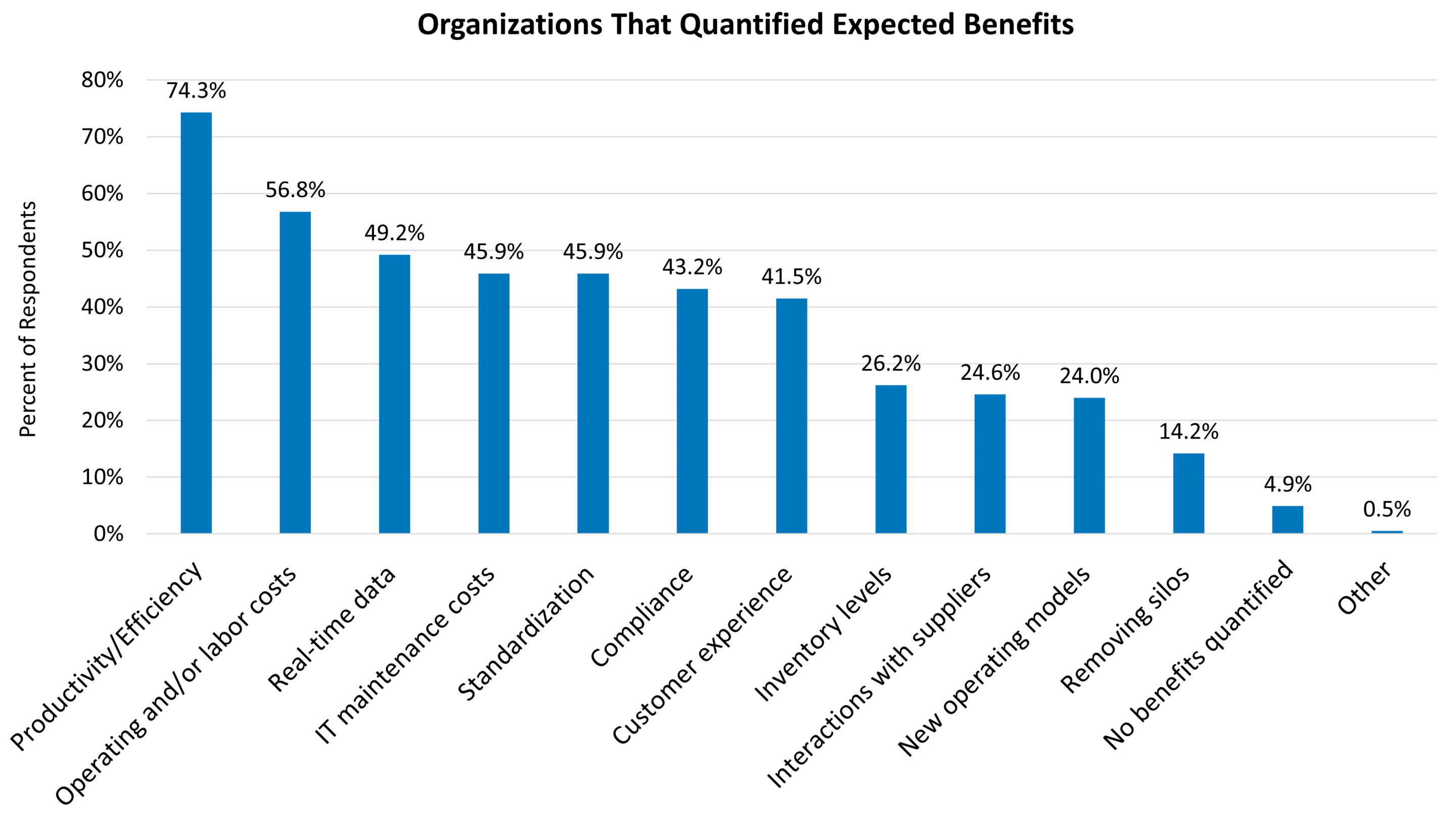
2. Most of Your Processes Need Improvement
Almost half of organizations in our study improved most of their business processes as opposed to key processes or no processes:
When you overhaul your processes to this extent, an outside perspective is essential. Consider hiring ERP implementation consultants who can leverage lessons learned from projects across a variety of industries. This means they make no assumptions about the way your business should run.
In other words, an ERP consultant can help you understand the “why” beyond each of your processes. This ensures that you submit the right requirements to ERP vendors, instead of asking them to automate inefficiencies.
3. Your Team Lacks Experience With Business Intelligence Technology
Recent industry developments, like low-cost sensors and analytics as a service, are making it easier than ever for organizations to enable data-driven decision-making. One piece of this puzzle is implementing modern business intelligence (BI) technology.
Nearly all respondents said they deployed or plan to deploy BI at their organization:
If your project team doesn’t have much experience with BI technology, you might not be able to identify all the ways you could derive value from your data.
As a result, it would be more difficult to realize real-time data benefits such as:
- The ability to predict future outcomes and proactively address potential issues
- Assurance that remote and dispersed teams are accessing the same data
- Immediate knowledge of every market fluctuation
4. You’re a Global Organization With Many Locations
Compared to other business benefits, organizations in our study struggled most to realize benefits in the area of standardization:
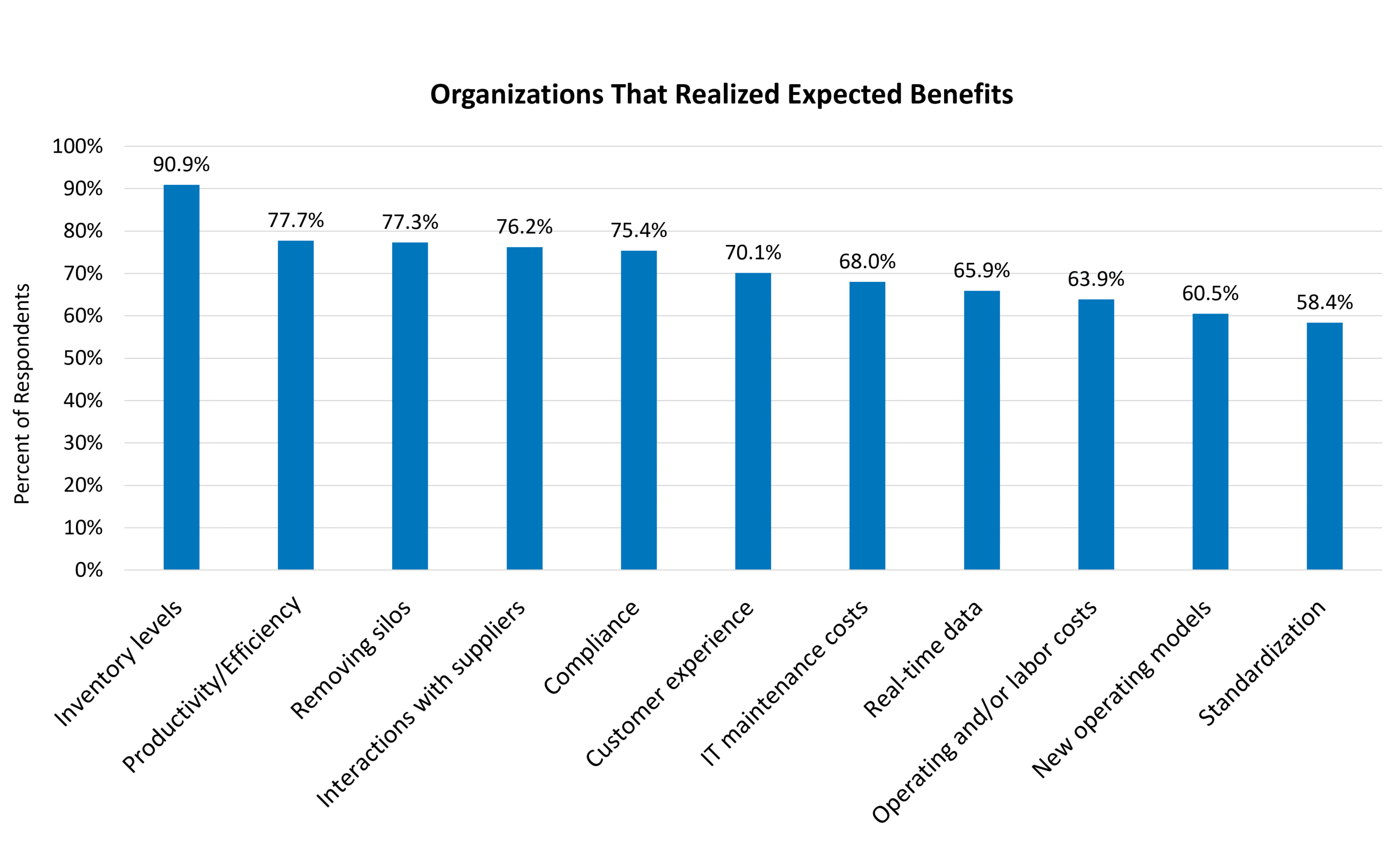
Standardization is naturally more difficult for large, global organizations, so if your company falls into this category, you will likely need third-party guidance for standardizing your processes and data.
DIY Works for House Projects, not ERP Projects
Organizations tend to minimize project costs by cutting corners. If you’re wanting to be cost-conscious but don’t want to cut anything that’s essential, an ERP consultant can help you determine the right ways to save money in both the short and long term. In addition, they can leverage their operational expertise to enable you to take advantage of real-time data.
If you take away one piece of advice from our 2023 ERP Report, let it be this:
It’s important to lay the groundwork for enabling data-driven decisions, but before you do, be sure to hire an experienced consulting firm to guide you.
Please download our 2023 ERP Report to learn more. In the meantime, you can request a free consultation below to learn about Panorama’s comprehensive suite of service offerings.







